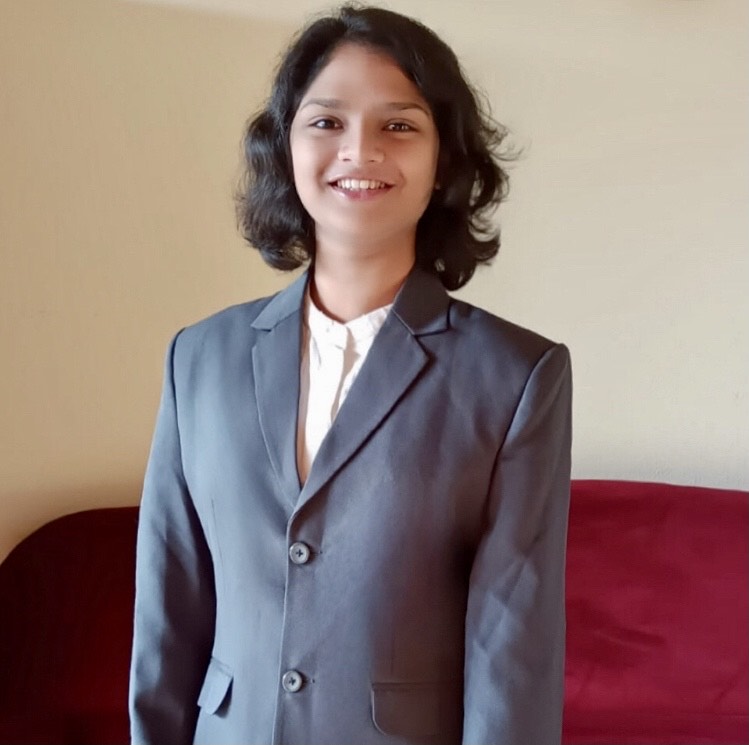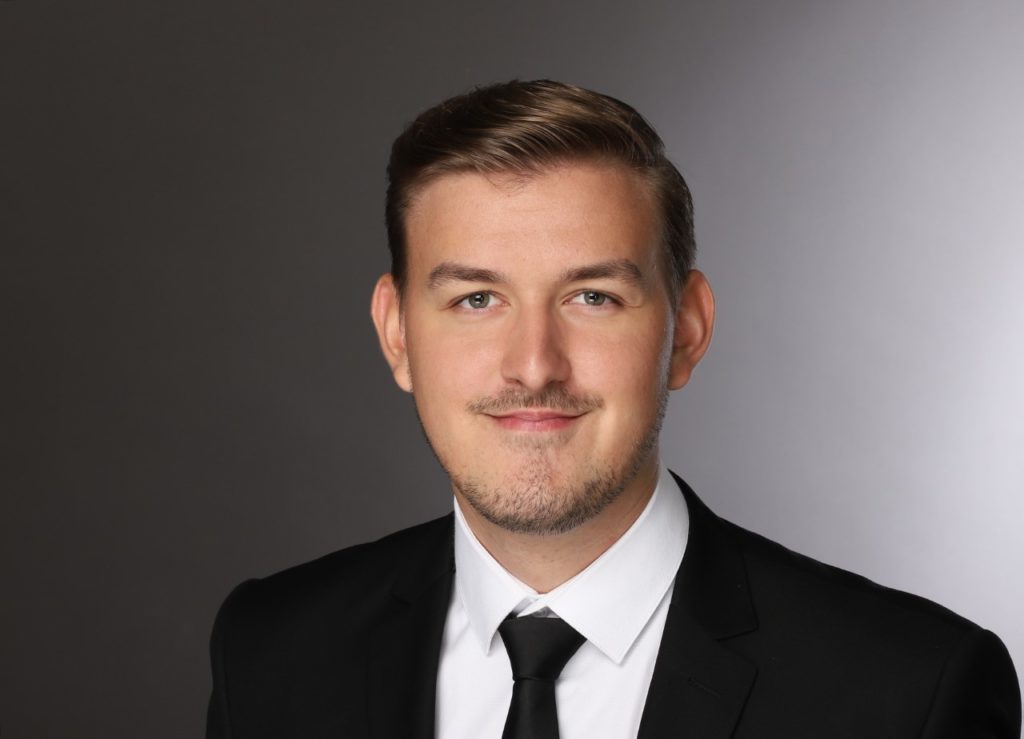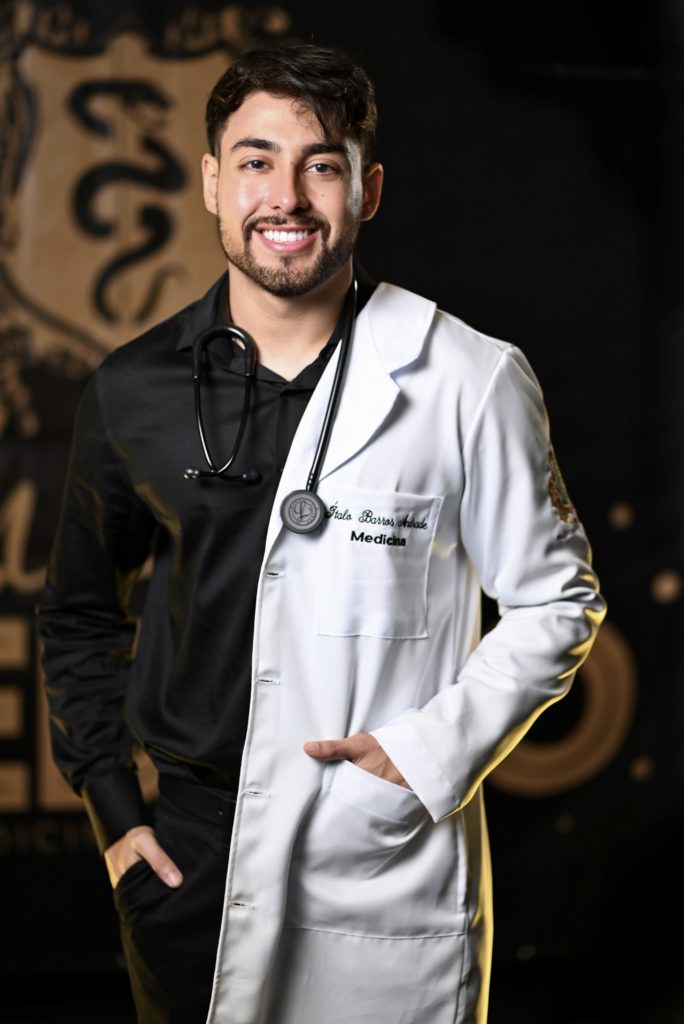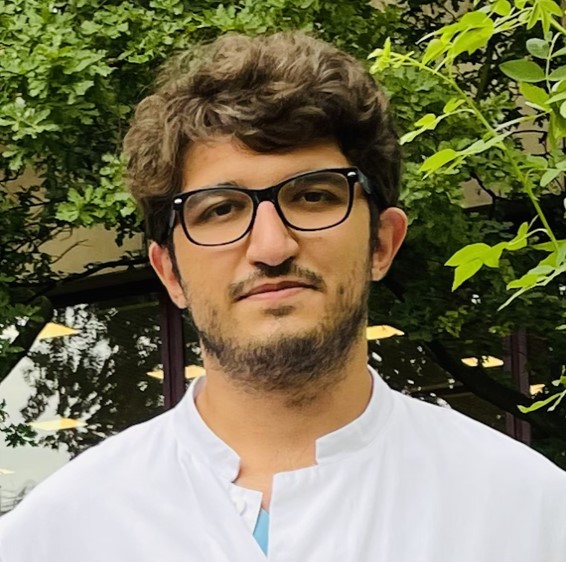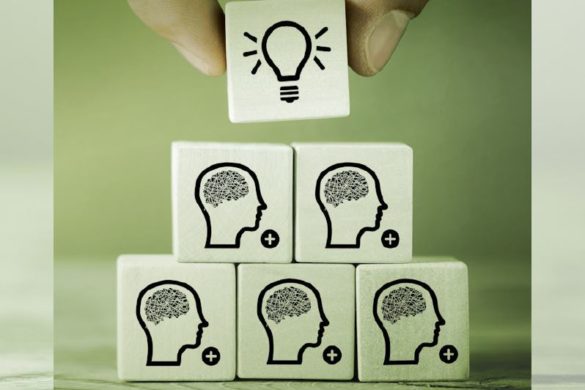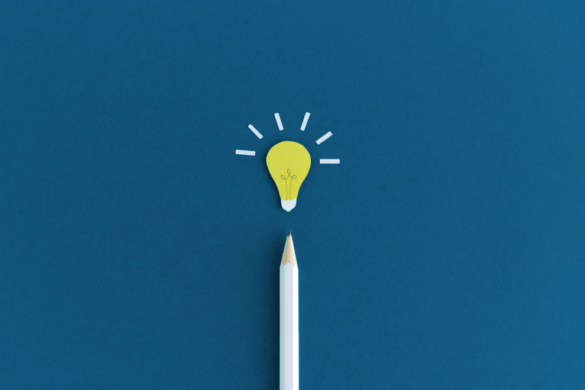Our 4th Students’ Corner article submission is on the topic ‘What neurology taught me in 2022‘. Once againe, we received many excellent submissions, but the EAN Student Task Force managed to reduce the field down to four winners. Here we present the winning essays. Happy reading!
What neurology taught me in 2022
by Rishmita Thakur, 3rd year medical student, Tbilisi, Georgia
Have you ever found yourself in a predicament when everything seems to go completely wrong? Well, consider skydiving without a parachute or drawing water from a well during a drought! To make it worse, imagine wandering out to your neighborhood supermarket and returning with Covid rather than milk and bread! Now that is what comes to my mind when I think of 2021. The catastrophic pandemic had left the world in an unimaginable state of agony, and the upcoming year of 2022 seemed like the most soothing piece of dessert on the menu that everyone was longing to devour after a terrible meal. People from all across the world had joined forces in wishing and praying for a restoration of normality. The year 2022 got off to a very upbeat start with the motto, ‘Stop Waiting, Stop Sitting Around, Stop Procrastinating! It’s Your Turn to Create Some Magic!’
Since each one of us sharing this platform are neuroenthusiasts, I’m sure all of you would agree that 2022 was indeed a year full of extraordinary interventions, research, and advancements, especially in the field of neurology,which revealed a number of secrets and provided solutions to problems that were previously obscure and deeply rooted. To offer a few illustrations: a) the development of the first-ever body maps for tracing hallucinations; b) brain implants; c) significant improvements in the treatment of progressive neurodegenerative disorders like Parkinson’s and Alzheimer’s; and d) the discovery of ‘math Neurons’” were some of the breakthrough studies of 2022. In my opinion, despite being disastrous, the pandemic definitely gave us the time and drive to reflect and channel our efforts in directions that helped us yield a substantial outcome. Beginning in January, the world witnessed several astonishing works that not only sparked a great deal of curiosity and comprehension but also made us fall in love with the brain all over again! From a wide array of topics, I was personally held back by a few mentioned below, who not just inspired and captivated my interest; but also gave me an insight into the future of neurology.
i. Neuroinflammation In Stroke- A Potential Target for Future Cell Therapy
ii. Neurology Of Covid-19
iii. Alternate Pharmacotherapy for Drug-Resistant Epilepsy and Presurgical Evaluation
iv. Brain Death – When to Let Go
v. Combination Molecular Therapy for SMA
vi. Blood Phosphorylated Tau – A Biomarker for Alzheimer’s Disease
2022 brought me to my realisation that medicine is a never-ending adventure and neuro is a permanent mystery! The year gave me a chance to closely observe and renew my love and passion for neurology along with neurosurgery through a range of research activities, conferences, contests, international symposia, and other events. A few of the most important lessons from 2022 that I learned through encountering some highly notable individuals in this field were:
• There is no black or white wrt the brain for when the time comes it’s all grey!
• Regardless of how much you believe you have accomplished, there is still a lot more waiting to be found!
• Neurology is an important tool for comprehending one’s own existence and not just the study of the brain.
• Thinking within boundaries produces ‘tTheories, whilst thinking outside them creates history.
• And finally, my personal favorite: the day a person decides to love the brain is the day they embark on a journey from being ordinary to being extraordinary!”
I’m sure those of you going through this had a fleeting memory of your first encounters with the brain that made you all think, “This very thing right here, is what I would like to establish my future in.” As an example, my grandfather getting diagnosed with dementia in 2015, was my very first learning exposure in the field of neurology. My understanding of this disease as a schoolkid was that it is a state in which the brain forgets what it is intended to do. The idea that the brain will gradually deteriorate while erasing all the great memories a person accumulated over the course of their lifetime was both fascinating and mind-boggling to a young mind. However, naïve at that point in time, it made me realise that, no matter how much we advance in the future, there would always be a few physiological processes or physical portions of this mastermind organ that won’t fully reveal themselves, and that inspired me to embark on this whimsical journey of expanding my knowledge in neurosciences.
May it be 2022, or 2045 I’m certain each sunrise would bring new learnings, hope, and advancements in this rapidly evolving field of intellect. Just like 2022, the upcoming years in neurology would witness explosive growth in potential medical therapies and research owing to its title of being ‘One of the Most Dynamic Areas of Medicine’.
Multiple Sclerosis – Do it yourself
by Marc Ronald Schneider, 4th year medical student, Germany
In 2022, neurology taught me to develop different perspectives.
From a student’s view, I was truly blessed to learn about the principles of neurology, by learning from the bedside: signs and symptoms, as well as the entire neurological examination. Bringing theoretical knowledge into play left me humble and eager to learn.
My grandmother was diagnosed with multiple sclerosis decades ago. She always told me that neurology or more specifically, the expression of neurology in the form of multiple sclerosis, was a huge obstacle in her life; an everyday challenge to master.
Her goal was to not be dependent on something that couldn´t be changed and to still thrive, even when sometimes everything seemed to work against her. In her case, she managed to keep a strong mindset, however, what was working against her, was her body.
She had to cope with the disease and function around her family and within her profession. Every day, all her life since the diagnosis.
Her motto was: MS – “mach selber”, which translates into “do it yourself”.
Neurology has taught me many things in many ways through her experience with the disease.
When her life came to an end this year, I was able to see neurology through a different lens. It reflected to me one more time, why this subject matters.
The entire life of some patients may change after being diagnosed with neurological pathology, just like my grandmother´s life was changed.
I cannot imagine what emotions neurological patients are forced to deal with, nor the obstacles they must overcome in their daily lives, but my experiences this year in the field of neurology taught me how much I would like to understand these patients and help them to gain back as much of their life quality as possible, with medical expertise and guidance.
I was also very thankful to have gained the opportunity to work in a tutor position at the department of human anatomy and cell biology this year, where I assisted in the teaching process of the neuroanatomical principles of neurology. Through these first teaching experiences, I learned that teaching isn’t just an essence in development, it is also a creative approach to science. Not only have I discovered my passion for teaching, but I was also part of contributing to the academic career of my fellow students.
Furthermore, I got involved in neuroscience research projects and worked with people, who feel the same drive, which grew my fascination for the subject.
To conclude, in 2022 neurology equipped me with fascination, curiosity, and courage.
Hyposkillia’s fluidity and the advancement of the technique
by Ítalo Barros Andrade, 4th year medical student, Brazil
It is crucial to think about how liquid modernity influences the way we do science. When we study medicine, we understand that, under mismanagement, the doctor needs to treat all patients with the same care, where words do not limit respect. Recently, followed by years that have revolutionised medicine in every respect, COVID-19 has transformed everyday life into chaos, and yet some doctors taught one of the most important arts of medicine: resilience.
The neurological and psychic aspects that have favored or hindered many people during the pandemic made us reflect on how powerful the human mind is over the body. Comparing the brain with bricks, all experiences are necessary to complete us and become unique, building memories and formulating thoughts. In short, neurologists need quickly to recover and adapt because diseases that reach the structure responsible for ‘building’ space, time, meanings, and feelings change the life, not only of the patient but everyone around them.
From a massive perspective of technology, the year 2022 showed that the advancement of techniques and instruments is relevant to develop a good prognosis and a better quality of life for the patient. However, without living the Hippocratic quote, medicine practiced in this century seems banal. In addition, the patient’s interdisciplinary approach reinforces the complexity of the human being. However, this complexity is not always synonymous with difficulty, as it refers to the difference in serving each patient. So, doing a more individual analysis.
What was much debated in congresses and meetings this year, in addition to innovation and maintenance in disease treatments, guidelines update, and Covid-19 in Neurology, Hyposkillia drew attention, as it stressed that the clinical deficit disadvantages the quality of the doctor. In addition, ILAE, with another update, proposed the most worthy nomenclature for paediatric patients with epilepsy, taking into account the patient’s respect and social appreciation of the disease. This persistence of neurology in treating the patient with humankind delights medicine for not showing contempt for the patient and valorising it in full.
Nonetheless, the progress of artificial intelligence in the conception of neuroimaging, the ease of access, and the rapid diagnostic association are positive factors that have added neurology aspects that were often unimaginable. Moreover, AI’s power is rapidly changing routine, allowing wiser and higher resolution answers that will radically improve the patient’s approach if associated with humanised clinical skills. As a result, the arrival of wearable devices that monitor EEG will also be able to generate more data in neurology, favoring doctors and patients.
Thereby, the phrase that made more sense to me this year is in Latin, Medice, cure te ipsum, which translates as ‘physician, heal thyself’. For me, its meaning reflects the importance of being in yourself, understanding your place and your importance, and from this, making others valued.
Therefore, resilience and innovation help in the problems and leading new projects. The union of these pieces builds something greater and more complex, and with each pace is discovered something new as in building games. To think that neurology taught me so much this year makes me enthusiastic to practice it in a few years. When I look at the future, the path I should go to until I find my fulfillment becomes increasingly evident. Well, “a good doctor treats diseases, but the great doctor treats the patient.”
Dare to Metamorphosis of the Mind
by Berkay Akad Ülker, 6th year medical student, Turkey
The year 2022 has undoubtedly been a challenging and complex year to get used to. Adapting to the ‘new normal’ after two years of inactivity due to the pandemic was a different experience for humanity.
Since my first year at medical school, neurology has always been a field that I’ve been interested in and actively enjoyed learning about. However, I realised yet another essential aspect of neurology for me when I wanted to change something early this year after a severe series of events caused by a lack of efficiency during the lockdown era. Astonishingly, neurology consisted of the knowledge I could use to improve my quality of life. After all, the information I needed to become a better version of myself was actually hidden in the depths of my brain!
It was soon a conscious analysis for me that this different ’experience’ I have mentioned was actually of such critical importance that it caused our brains to change with an action-reaction mechanism. This mechanism was, of course, nothing but neuroplasticity, the fantastic ability of our brain and nervous system to change. As Ramon y Cajal once said, if people want to change their nervous system, they can become sculptors of their own nervous system and change it as they please. Upon this awareness, I decided to become the sculptor of my own mind.
If one intends to go through such a metamorphosis, the first thing to do is to determine what that alteration should be. To do this ourselves, we need to be consciously aware of the outcomes, but our brain is already doing this for us. When we focus our attention on a new adaptable possibility, two neuromodulators released from the brain already begin to signal neuronal circuits that are likely to change: epinephrine and acetylcholine. Of course, there is no certainty that the circuits will change as a result of this marking, but this is the first door to be opened if a change is intended. This ‘marking’ by epinephrine released during high alertness or learning can be likened to an arrow, while acetylcholine is the head of that arrow that enlightens the way of change. However, we all know that an arrow just standing there will do nothing and will not be able to move towards the target. The neuromodulator that provides the force of transition for the neuroplasticity arrow that will aim this goal is none other than dopamine, which in my opinion, can be identified as the source of humanity’s progress since prehistoric times.
This is exactly the point where I started the process of mental reformation for myself. Because I knew that I had enough attention to focus on my goals and a guide to direct them, but I needed a more potent driving force to go on this path. This led me to try to understand the dopamine neuromodulator more. Although dopamine is a molecule almost always associated with pleasure and achieving a goal, it would be more accurate to call it a motivation molecule. This chemical can be an even more powerful driving force when we feel we are on the right track and is also likely to increase our capacity for neuroplasticity and motivation. Yet, what was the genuine source of this motivation?
I realised that, like many others, I didn’t like making mistakes. I would have done my best to avoid the consequences that I feared and made me feel bad; the unfortunate errors of my poor mental performance. But something else I wasn’t aware of was that something had to go wrong before I could release dopamine and positively induce my motivation with a sense of “something going right”. On the contrary, I was just trying to escape from these situations.
As experiments have shown, when we do something wrong, epinephrine increases attention to that specific mistake, while acetylcholine increases focus. So, when I felt frustrated due to a simple mistake I made at the beginning of any challenge, quitting that quest ultimately was the worst thing I could do to myself! Because right at that moment of frustration, my brain was already setting up an incredible neuroplasticity mechanism for me to reshape my brain and turn an experience into new and mastered knowledge.
Eventually, from the moment I learned to use this mechanism to my advantage, I started to love making mistakes more. Every mistake was a great opportunity to learn something better and prove myself about the subject. Finally, after a long period of interregnum, I took the leap of faith for that inevitable metamorphosis, pushing myself out of the cocoon that surrounded me in mental boundaries.
Making mistakes was the best thing I did in 2022. Neurology taught me that these mistakes are the actual trigger point of development in personal growth. I learned to stand up again and again after every fall by virtue of the fact that it is only possible to achieve glory in the hard way. Because conclusively, as the famous film told us long ago, “going in one more round when we can, is what makes all the difference in our lives.”

